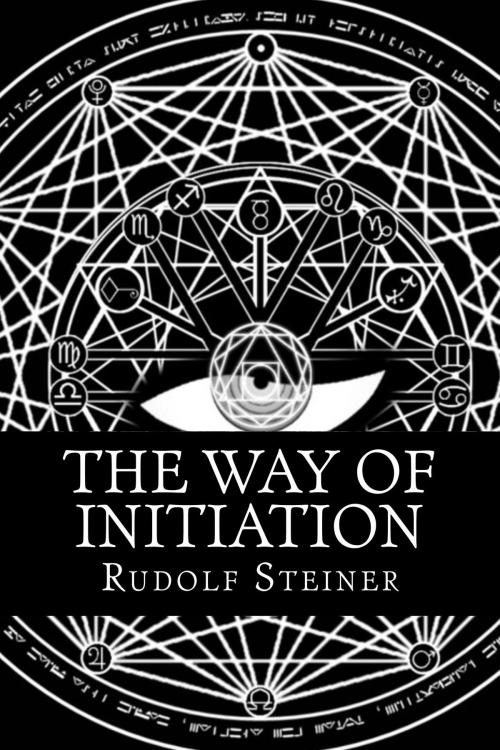| Author: | Rudolf Steiner | ISBN: | 1230000242489 |
| Publisher: | Enhanced E-Books | Publication: | May 26, 2014 |
| Imprint: | Language: | English |
| Author: | Rudolf Steiner |
| ISBN: | 1230000242489 |
| Publisher: | Enhanced E-Books |
| Publication: | May 26, 2014 |
| Imprint: | |
| Language: | English |
Rudolf Steiner gained initial recognition at the end of the nineteenth century as a literary critic and published philosophical works including 'The Philosophy of Freedom.' At the beginning of the twentieth century, he founded a spiritual movement, anthroposophy, with roots in German idealist philosophy and theosophy; other influences include Goethean science and Rosicrucianism. The first English version of ‘The Way of Initiation’ first appeared in print in 1904 as two volumes.
Steiner was a philosopher, social thinker, architect, and esotericist. His philosophical work, which he termed spiritual science, sought to provide a connection between the cognitive path of Western philosophy and the inner and spiritual needs of the human being.
Steiner worked with educators, farmers, doctors, and other professionals to develop Waldorf education, biodynamic agriculture, anthroposophical medicine as well as new directions in numerous other practical areas. He advocated a form of ethical individualism, to which he later brought a more explicitly spiritual component.
He based his epistemology on Johann Wolfgang Goethe's world view, in which 'Thinking … is no more and no less an organ of perception than the eye or ear. Just as the eye perceives colours and the ear sounds, so thinking perceives ideas.'
A consistent thread that runs from his earliest philosophical phase through his later spiritual orientation is the goal of demonstrating that there are no essential limits to human knowledge." Steiner became a well-known and controversial public figure during and after World War I.
In response to the catastrophic situation in post-war Germany, he proposed extensive social reforms through the establishment of a Threefold Social Order in which the cultural, political and economic realms would be largely independent. Steiner argued that a fusion of the three realms had created the inflexibility that had led to catastrophes such as World War I. In connection with this, he promoted a radical solution in the disputed area of Upper Silesia, claimed by both Poland and Germany; his suggestion that this area be granted at least provisional independence led to his being publicly accused of being a traitor to Germany.
Steiner opposed Wilson's proposal to create new European nations based around ethnic groups, which he saw as opening the door to rampant nationalism. Steiner proposed as an alternative "'social territories' with democratic institutions that were accessible to all inhabitants of a territory whatever their origin while the needs of the various ethnicities would be met by independent cultural institutions."
In 1919, Steiner's chief work on social reform was released simultaneously in Germany, Austria, and Switzerland and sold some 80,000 copies in the first year. It led to the sociological theory known as "social threefolding".
Rudolf Steiner gained initial recognition at the end of the nineteenth century as a literary critic and published philosophical works including 'The Philosophy of Freedom.' At the beginning of the twentieth century, he founded a spiritual movement, anthroposophy, with roots in German idealist philosophy and theosophy; other influences include Goethean science and Rosicrucianism. The first English version of ‘The Way of Initiation’ first appeared in print in 1904 as two volumes.
Steiner was a philosopher, social thinker, architect, and esotericist. His philosophical work, which he termed spiritual science, sought to provide a connection between the cognitive path of Western philosophy and the inner and spiritual needs of the human being.
Steiner worked with educators, farmers, doctors, and other professionals to develop Waldorf education, biodynamic agriculture, anthroposophical medicine as well as new directions in numerous other practical areas. He advocated a form of ethical individualism, to which he later brought a more explicitly spiritual component.
He based his epistemology on Johann Wolfgang Goethe's world view, in which 'Thinking … is no more and no less an organ of perception than the eye or ear. Just as the eye perceives colours and the ear sounds, so thinking perceives ideas.'
A consistent thread that runs from his earliest philosophical phase through his later spiritual orientation is the goal of demonstrating that there are no essential limits to human knowledge." Steiner became a well-known and controversial public figure during and after World War I.
In response to the catastrophic situation in post-war Germany, he proposed extensive social reforms through the establishment of a Threefold Social Order in which the cultural, political and economic realms would be largely independent. Steiner argued that a fusion of the three realms had created the inflexibility that had led to catastrophes such as World War I. In connection with this, he promoted a radical solution in the disputed area of Upper Silesia, claimed by both Poland and Germany; his suggestion that this area be granted at least provisional independence led to his being publicly accused of being a traitor to Germany.
Steiner opposed Wilson's proposal to create new European nations based around ethnic groups, which he saw as opening the door to rampant nationalism. Steiner proposed as an alternative "'social territories' with democratic institutions that were accessible to all inhabitants of a territory whatever their origin while the needs of the various ethnicities would be met by independent cultural institutions."
In 1919, Steiner's chief work on social reform was released simultaneously in Germany, Austria, and Switzerland and sold some 80,000 copies in the first year. It led to the sociological theory known as "social threefolding".















